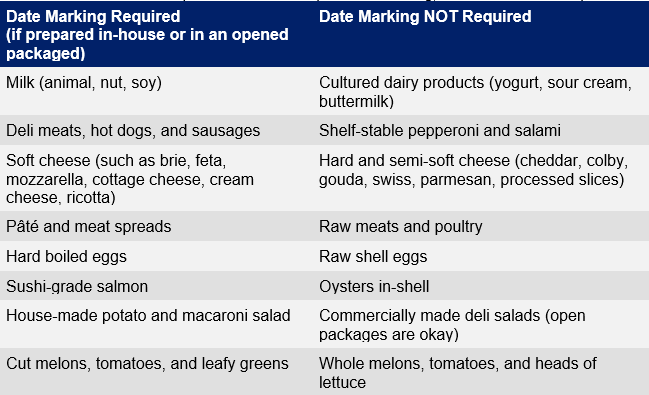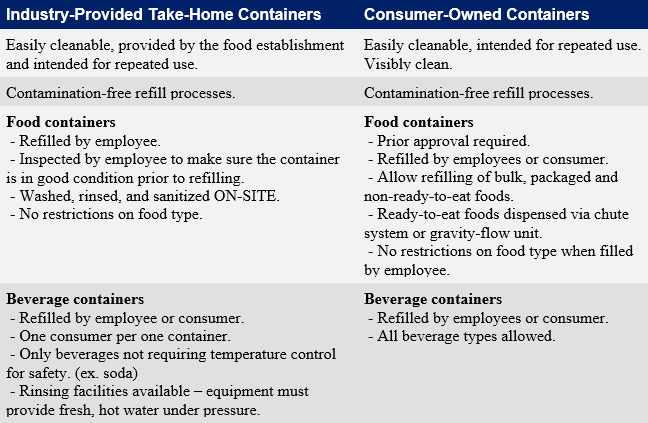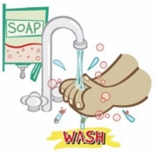|
Public
Health Food Safety
Permitting, Inspections, Illness Prevention
and Investigation
Skagit
County Public Health Department's Food Safety Program is responsible for
inspecting and permitting retail food service establishments (FSE). Our
mission is to prevent illnesses caused by improper preparation of food
through foodworker education, consumer education, disease investigation,
and inspections of everything from restaurants to high school concession
stands.
Food Establishment Definitions
Current Fee Schedule
Be aware of Food Safety Recalls
Annual
Food Service Permits
Restaurants, Espresso Stands, Stores, Mobiles
|
|
For complete requirements for retail food establishment construction and operation see:
WASHINGTON STATE RETAIL FOOD CODE, CHAPTER 246-215, WASHINGTON ADMINISTRATIVE CODE
|
|
Temporary
Food Services Permits
|
|
|
|
Food
Borne Illness Information
|
|
Skagit County Public Health takes complaints regarding foodborne illness and food safety seriously. If you believe that you have become ill from something you ate, we would like to know! Contact your health care provider if your symptoms are serious. Report online using the new statewide Foodborne Illness Notification System (FINS) or call us at 360-416-1500.
|
|
Food
Handler Cards and Training
|
Public Health has suspended on-site food handlers’ course and testing. The public has access to a statewide on-line course and testing as noted below at: www.foodworkercard.wa.gov
The Washington State Food and Beverage Service Workers permit, also known as a Food Worker Card, is required in Washington State for people that serve unwrapped foods to the public. Upon completion of the food handler’s program, which includes an interactive informational program and a Washington State exam, a Food Workers Card will be issued. All food workers are required to have a valid Washington State Food Worker Card within 14 days of employment. There are three ways to receive your Food Worker Card in Skagit County:
- Test, Pay, and Print Online at Home
-
Test Online at Home, Pay and Print in Person at Skagit County Public Health in Mount Vernon: 301 Valley Mall Way, Suite 110
Mount Vernon, WA 98273
- Test, Pay, and Print in Person at the East County Community Resource Center in Concrete
1: Testing is available online, 24 hours a day at
www.foodworkercard.wa.gov
- Go to www.foodworkercard.wa.gov and select a language to begin.
- If you are a new user, click on New User to register. Otherwise, sign in and begin.
- Watch an interactive informational program.
- Take test.
- Make payment:
- The cost of the class is $10 and can be paid with credit or debit cards with the VISA or MasterCard logo.
- Payment will be required before you may print your card.
- Make sure you are connected to a working printer to print your own card.
- Print your card. After you have passed the exam and paid online, you have 30 days to print your card for free. After 30 days, a $5 replacement fee may apply. You may also pay and print at Skagit County Public Health in Mount Vernon.
- Sign your card. Your card is not valid if it does not have your signature on it.
Online Information: Frequently asked questions for online testing
Beware of unapproved web sites offering the Washington State Food Worker Test! The only approved site for food worker card testing is www.foodworkercard.wa.gov.
- Our office has been made aware of at least two web sites that promote food worker training, charge a fee and offer a “food worker card.”
- These web sites can be identified by the ".com" in the web address. Even though their study information is very similar to what we recognize in current training programs statewide, these cards are not valid in Washington State as they are not issued per the food code by a Health Officer. The approved training and testing website is www.foodworkercard.wa.gov.
Be advised when your debit or credit billing statement arrives, charges for you food worker card will be listed under “TCP Online Food Card.”
Turn off your pop-up blocker. The pop-up blocker can usually be found under Tools on your menu bar.
Make sure you have the latest version of Adobe Flash on your computer. You can download Adobe Flash for free at https:get/adobe.com/flashplayer.
To print a copy of the Washington State Food and Beverage Workers’ Manual to help you prepare for the exam follow the link: Food safety is everybody's business: Your guide to preventing foodborne illness
(ONLINE MANUAL AND TEST OFFERED IN ENGLISH, CAMBODIAN, CANTONESE, KOREAN, MANDARIN, RUSSIAN, SPANISH, VIETNAMESE and CLOSED CAPTION.)
2: Test Online at Home, Pay and Print in Person at Skagit County Public Health in Mount Vernon
- Go to www.foodworkercard.wa.gov and select a language to begin.
- If you are a new user, click on New User to register. Otherwise, sign in and begin.
- Watch an interactive informational program.
- Take test in English or Spanish.
- The test is also offered in Cambodian, Cantonese, Korean, Mandarin, Russian, Spanish, and Vietnamese. However, the video is only available in English and Spanish.
- Visit Skagit County Public Health at 301 Valley Mall Way, Suite 110 Mount Vernon, WA 98273
- Pay Skagit County Public Health for your card with credit or debit cards with the VISA or MasterCard logo, cash, check, voucher, or money order.
- Skagit County Public Health will print it for you.
3: Test, Pay, and Print in Person at the East County Community Resource Center in Concrete
- Monday through Friday from 9:00 a.m. to 2:00 p.m. (no appointment needed)
- East County Resource Center, 45770 A Main Street, Concrete WA 360-416-1733
- Bring picture identification.
- Watch a 30-minute training video in English.
- Take and pass a Washington State exam.
- Pay $10, check or cash only
TO RENEW CARD:
If card is renewed before the expiration date on the card, a 3-year card can be issued at Skagit County Public Health office only. The renewal period is 60 DAYS BEFORE the card expires. Testing requirements are the same as if you were taking the test for the first time. The video must be reviewed and test taken every time you renew your food worker card.
RENEWING CARD FOR 5 YEARS:
Follow the procedure to renew a card. Bring proof that an approved food safety program has been completed, such as the WSU PIC training or ServSafe, within the last 2 years.
REPLACEMENT CARDS:
Food Worker Cards can be reprinted from the online course for a $5.00 fee. Go back to the online course, select the “Login” button and sign back in. Be sure to use the exact same registration information you originally signed in with (information is case sensitive). Or, if you bring picture identification and a $5.00 replacement fee to our office we can reprint it for you.
SPECIAL NEEDS TESTING:
Call the Skagit County Public Health Mount Vernon office at 360-416-1500 for information and scheduling.
FOREIGN LANGUAGE QUESTIONS
There are Spanish speaking employees available to answer your question at the Skagit County Public Health Mount Vernon office. Call 360-416-1500 for assistance.
Close
|
|
Consumer
Food Safety
|
|
|
| Food Safety in Emergencies |
|
|
| Retail Food Safety NEWS |
|
| Upcoming Classes |
|
Skagit County Public Health now offers in-person Certified Food Protection Manager (CFPM) classes and paper exams. Course materials are available for pickup approximately 30 days before the class.
All classes will be taught primarily in English with bilingual staff support in Spanish. Textbooks are available in English, Spanish, Korean, & Simplified Chinese. The paper exam is available in English, Spanish, Korean, Simplified Chinese, Canadian French, & Japanese.
We are also able to proctor some online CFPM exams. Please contact us for more information or to schedule a computer exam session.
|
Registration Form
Classes are from 8:30 AM – 4:00 PM. The exam session will start at 2:00 PM.
- January 13, 2026
- April 21, 2026
- July 16, 2026
- October 20, 2026
|
|
| Food Business Resources |
|
FOOD CODE
POLICY TEMPLATES & GUIDANCE
Please see the links below for templates, handouts, and other useful information from the Department of Health and other public health departments. Many resources are now available in English, Spanish, Chinese (Simplified), Chinese (Traditional), Korean, Russian, Somali, Tagalog, and Vietnamese.
POLLUTION PREVENTION RESOURCES FOR FOOD BUSINESSES
The Business Organics Management Area (BOMA) requires businesses that produce over 4 cubic yards of organic waste per week to subscribe to an organic materials management service. On January 1, 2026 that dropped to 96 gallons – this is the size of a green curbside yard waste bin. This law will affect Skagit County businesses, including food establishments, west of Highway 9 and around Lake Cavanaugh. Contact the Skagit County Pollution Prevention Assistance Program with any questions or concerns about these new rules.


|
|



 
SKAGIT COUNTY
PUBLIC HEALTH
301 Valley Mall Way, Suite 110
Mount Vernon, WA 98273
Phone (360) 416-1500
EH@co.skagit.wa.us
|